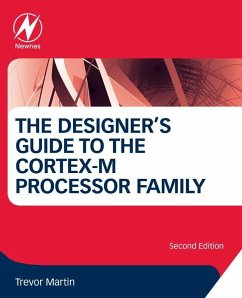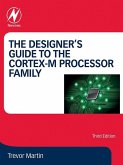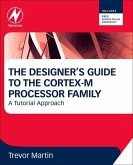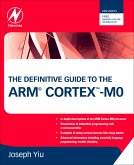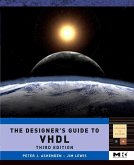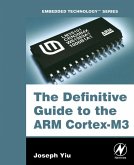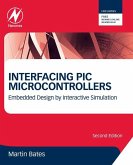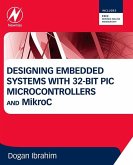Once a firm grounding in the Cortex-M processor has been established the book introduces the use of a small footprint RTOS and the CMSIS-DSP library. The book also examines techniques for software testing and code reuse specific to Cortex-M microcontrollers. With this book you will learn: the key differences between the Cortex-M0/M0+/M3 and M4 and M7; how to write C programs to run on Cortex-M based processors; how to make the best use of the CoreSight debug system; the Cortex-M operating modes and memory protection; advanced software techniques that can be used on Cortex-M microcontrollers; how to use a Real Time Operating System with Cortex-M devices; how to optimize DSP code for the Cortex-M4; and how to build real time DSP systems.
- Includes an update to the latest version (5) of MDK-ARM, which introduces the concept of using software device packs and software components
- Includes overviews of the new CMSIS specifications
- Covers developing software with CMSIS-RTOS showing how to use RTOS in a real world design
- Provides a new chapter on the Cortex-M7 architecture covering all the new features
- Includes a new chapter covering test driven development for Cortex-M microcontrollers
- Features a new chapter on creating software components with CMSIS-Pack and device abstraction with CMSIS-Driver
- Features a new chapter providing an overview of the ARMv8-M architecture including the TrustZone hardware security model
Dieser Download kann aus rechtlichen Gründen nur mit Rechnungsadresse in A, B, BG, CY, CZ, D, DK, EW, E, FIN, F, GR, HR, H, IRL, I, LT, L, LR, M, NL, PL, P, R, S, SLO, SK ausgeliefert werden.

